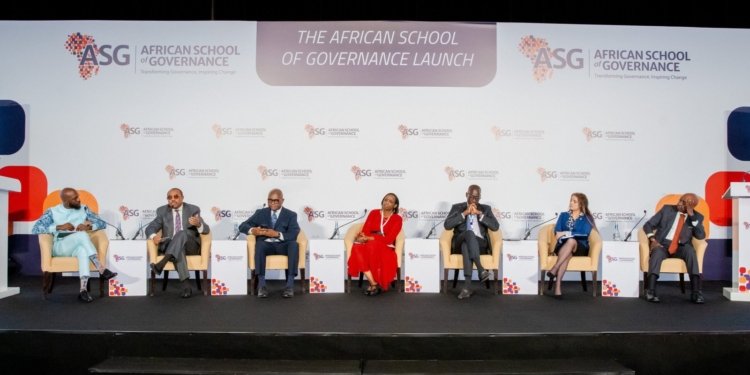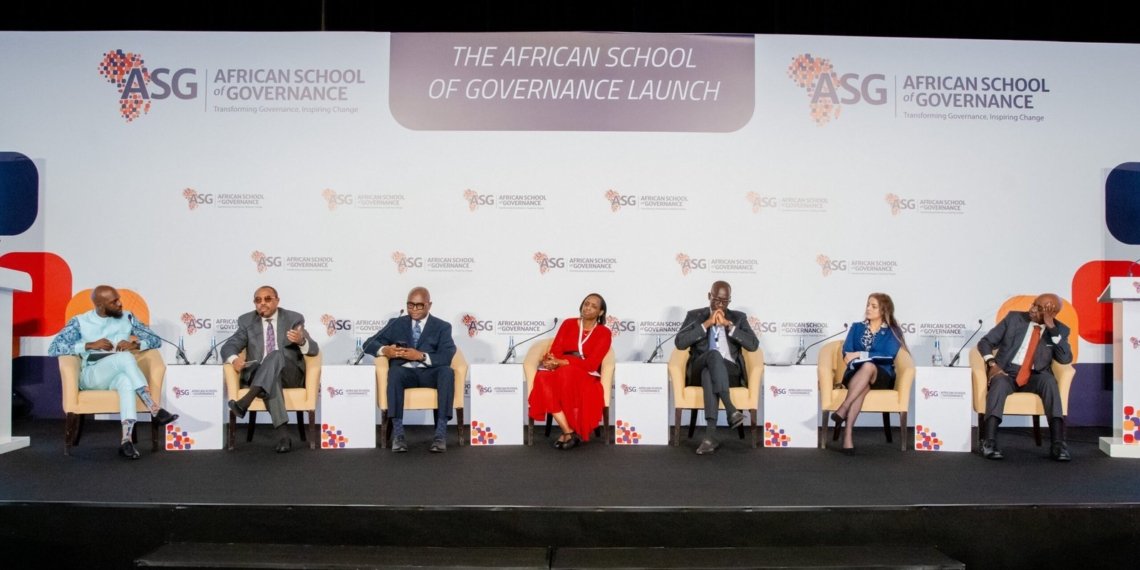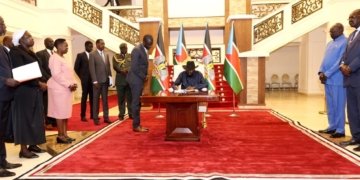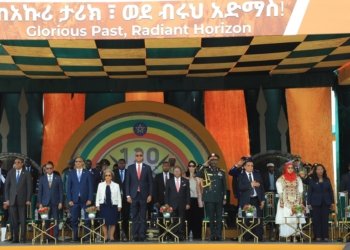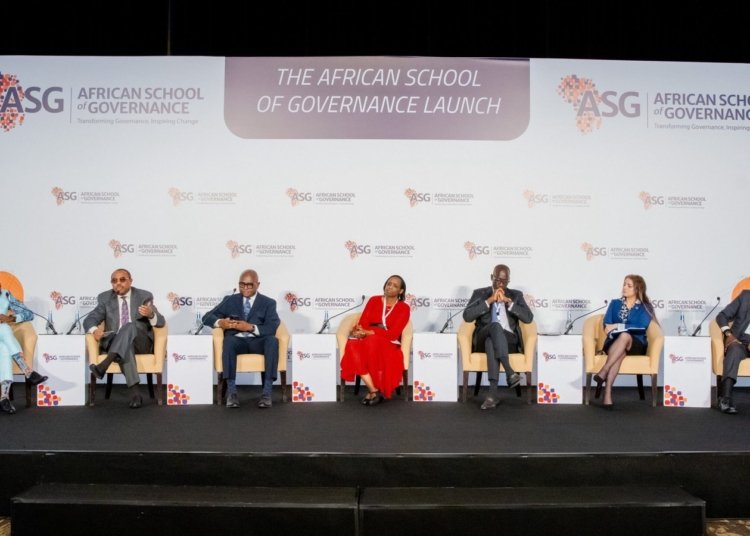KIGALI, Rwanda (BG) – The African School of Governance (ASG) officially launched on Tuesday at the Kigali Convention Centre, marking a significant step toward transforming leadership and governance across Africa through ethical leadership development and evidence-based policymaking.
The ASG, based in Kigali, Rwanda, aims to address Africa’s governance challenges by fostering ethical leadership, evidence-based policymaking, and innovative solutions.
“This is an event of profound historic importance. ASG, as an accredited Pan-African graduate-level institution, is dedicated to leading the transformation of governance in Africa,” said Prof. Kingsley Moghalu, president of ASG.
Moghalu commended the ASG co-founders, President Paul Kagame and Hailemariam Dessalegn, former prime minister of Ethiopia, for their vision to develop the next generation of purpose-driven African leaders.
Officially launching the ASG, Moghalu highlighted the platform as the start of transformative African governance discussions.
“What excites us is that ASG was envisioned as a dynamic institution that enables visionary and ethical African leadership, pursuing an ‘Africa First’ research agenda,” said Prof. Peter Materu, chief program officer at the Mastercard Foundation.
“African governance demands leaders with the right skills and deep technical knowledge on the issues that need to be addressed. That’s the core of ASG,” said Makhtar Diop, chairman of ASG’s governing board and managing director of the International Finance Corporation, a member of the World Bank Group, who joined the launch virtually.
Leaders Call for an African Renaissance in Governance
“The ASG finds a natural home here in Rwanda—a country that reflects the very principles this institution seeks to cultivate. Hosting the ASG is our shared responsibility to contribute to Africa’s future by investing in the next generation of leaders,” said Joseph Nsengimana, Rwanda’s minister of education.
“As we inaugurate the ASG today, let us celebrate not only its opening but also the promise it holds for our continent and the globe at large. Together, let us invest in leadership that will steer Africa toward a prosperous future,” Nsengimana added.
In his keynote address, Hailemariam, co-founder of ASG and guardian of the ASG Foundation challenged colonial-era narratives about African politics and called for reclaiming factual historical accounts.
“The first step for Africa to reclaim its greatness is to build an understanding and appreciation of its history, political economy, and empowered mindsets in its leaders. Based on this solid foundation, leaders can then shape Africa’s trajectory,” Hailemariam said.
Moderated by journalist Larry Madowo, a high-level discussion panel featuring ASG governing board members focused on African solutions for global impact through governance education.
Emphasizing the mindsets ASG leaders need to cultivate, Hailemariam stressed the importance of driving an African renaissance in leadership, noting that techniques, knowledge, and skills alone are not enough.
To ensure African voices are heard in global discussions, Hajer Gueldich, African Union legal counsel and professor of international law at the University of Carthage, highlighted three key takeaways from Agenda 2063: prepare the next generation of African leaders, promote Pan-Africanism, and amplify African voices on the world stage.
Donald Kaberuka, former president of the African Development Bank, posed a powerful question: “Who defines Africa’s challenges and solutions?” — a thought-provoking reflection on ASG’s critical role in shaping the continent’s future.
With the ASG President leading the way, attendees were given an exclusive virtual tour of the ASG campus.

